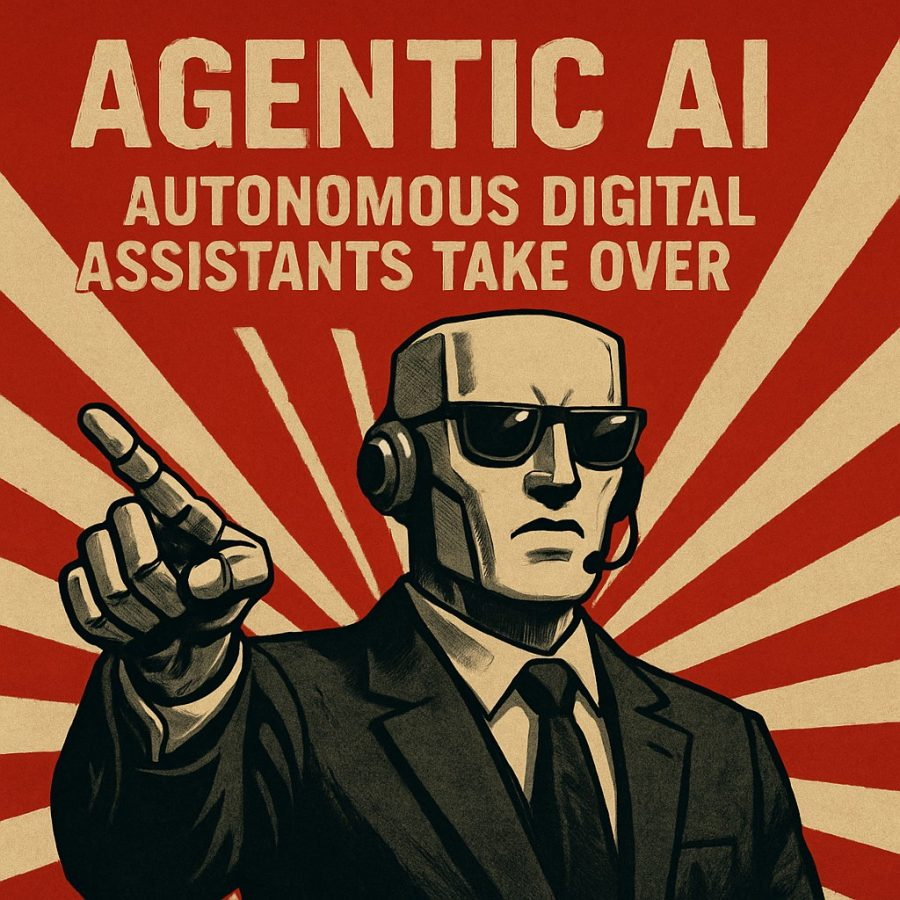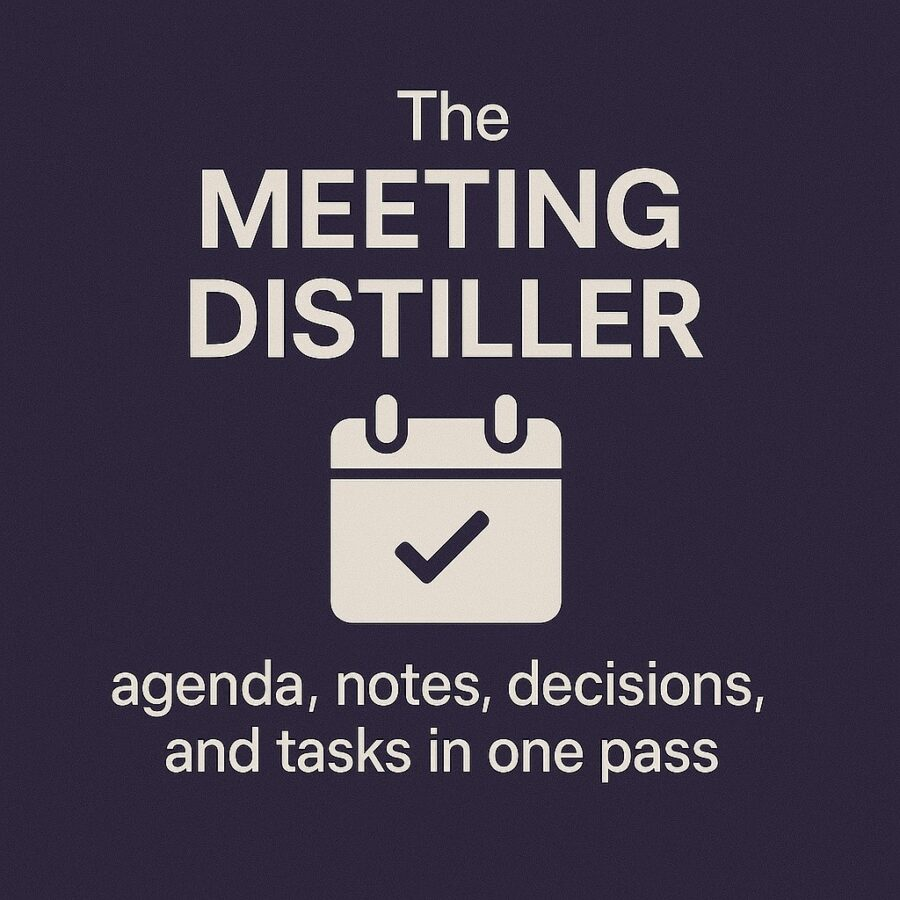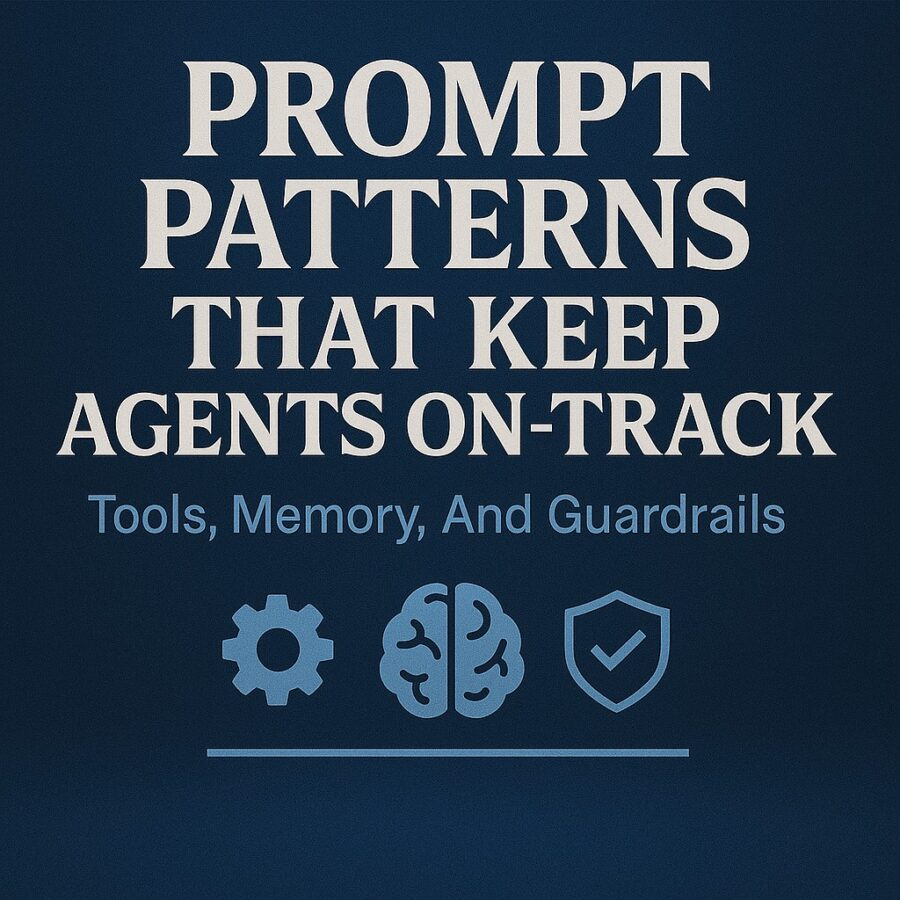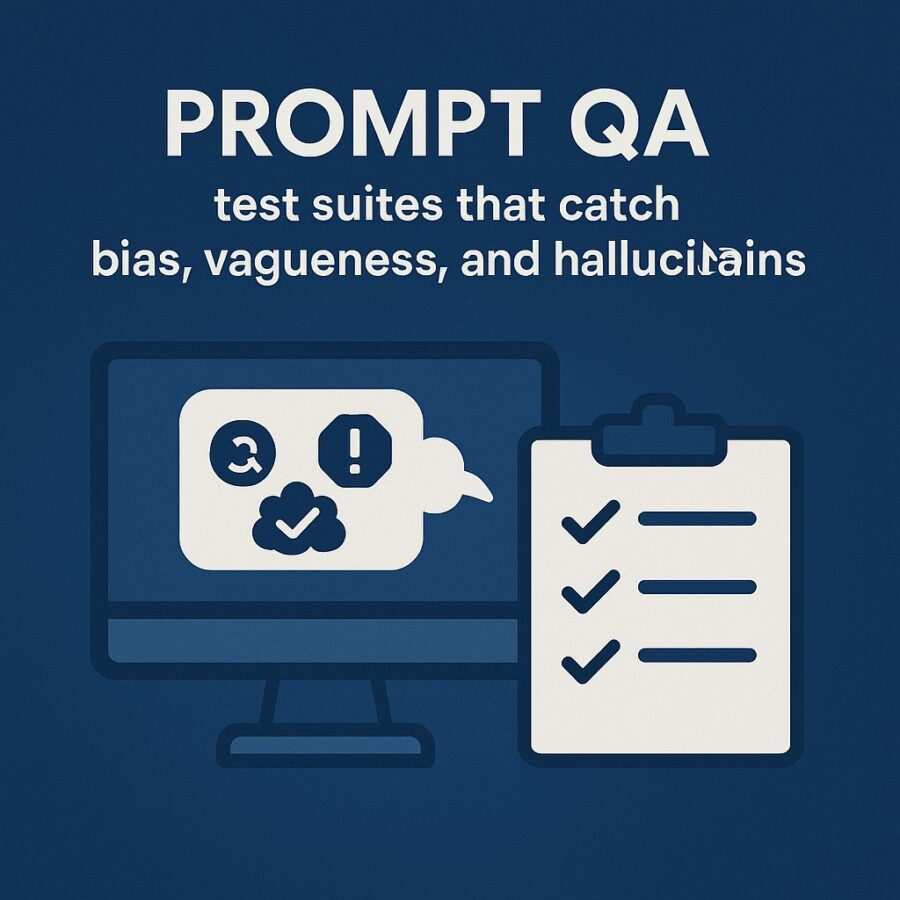Views: 0
AI agents are autonomous systems that don’t just follow commands but strategize and execute complex tasks. AI agents are rapidly gaining ground across industries. From post-production in entertainment to self-managing workflows in enterprise environments, these agents are redefining AI’s role.
Picture this: you walk into your kitchen on a Monday morning. Your coffee machine greets you with a fresh brew, your inbox has already been sorted, and your calendar politely informs you that your afternoon meeting has been moved to a better time. No, you have not secretly hired a personal assistant who works for free. You have just stepped into the era where Agentic AI and autonomous digital assistants take over tasks you never wanted to do in the first place.
These systems are no longer science fiction. They are as real as the Wi-Fi router sitting next to your couch. Except instead of blinking at you aimlessly, they blink with purpose. Agentic AI has quietly woven itself into productivity apps, email inboxes, finance tools, and even your grocery list. And now, the world is collectively realizing what it means to let machines handle not only calculations but decisions. Spoiler: it is both exciting and slightly terrifying.
In this article, we will explore how agentic AI works, what it is capable of today, the industries it is about to reshape, and why you may soon thank it for saving you from another soul-crushing Zoom call. Strap in, because autonomous digital assistants are not asking for permission. They are politely telling you to take a nap while they finish your work.
The Rise of Agentic AI
Agentic AI is a fancy way of saying machines that not only compute but also act with independence. Imagine Siri and Alexa after a few too many cups of ambition, suddenly deciding to schedule your doctor’s appointment without waiting for you to mumble “Remind me later.” This is where we stand.
Traditional AI systems responded to prompts. You asked, they answered. Now, autonomous digital assistants anticipate. They do not simply react; they plan, execute, and sometimes surprise you with outcomes you did not know you wanted. That leap from passive tool to active agent is what defines this new generation of AI.
The funniest part is that agentic AI often does not brag about its cleverness. It just quietly gets things done while you wonder why your calendar feels more organized or why your bills somehow pay themselves on time. Unlike your co-worker who announces every completed task with confetti, agentic AI thrives on silent competence.
Why We Crave Autonomous Digital Assistants
Humans are very talented at procrastination. Ask anyone with a laundry pile that could rival Mount Everest. Autonomous digital assistants solve this human problem in two clever ways. First, they take away the friction of decision-making. Second, they automate repetitive actions until you forget they even exist.
Think about the time you waste scrolling through emails. Studies show the average professional spends nearly 28% of the workweek reading and responding to emails. Agentic AI does not get emotional about inbox zero. It simply filters, drafts, and clears the clutter faster than you can finish that overpriced latte.
And unlike human assistants, these digital counterparts do not call in sick, forget birthdays, or judge you for rewatching the same TV series three times. They just execute, patiently and predictably. The craving for such reliability is universal, whether you are a CEO juggling investor calls or a parent juggling school pickup lines.
Humor in the Age of Agentic AI
We should pause and admit: giving autonomy to software has created moments of unintentional comedy. For example, one early scheduling assistant accidentally double-booked its owner with both a yoga retreat and a quarterly board meeting. Priorities, apparently, are in the eye of the algorithm.
Another story making the rounds involves an agentic AI that decided to order groceries weekly but misinterpreted “family pack” as “feed a small nation.” Weeks later, the family was still eating frozen waffles. Mistakes like these are what make agentic AI charming. They remind us that even digital assistants can be hilariously human in their flaws.
Yet these errors are decreasing as systems learn faster and integrate with more data sources. Today, an autonomous digital assistant can already draft your emails, manage your travel, generate expense reports, and politely decline invitations to events you never wanted to attend. That is not just progress. That is salvation.
How Agentic AI Works Behind the Curtain
Autonomous digital assistants do not possess magic, although they would not mind if you thought so. Underneath the hood, they combine large language models with decision-making frameworks and tools that connect to external systems. Picture a librarian who can also drive a forklift, book travel, and give surprisingly good relationship advice.
The process typically unfolds in stages:
- Perception – the assistant interprets your data and context.
- Planning – it decides the sequence of steps needed.
- Action – it executes using connected apps or APIs.
- Reflection – it learns from the outcome and refines itself.
This loop allows agentic AI to evolve beyond static responses. Instead of repeating the same action blindly, it adapts, like a student who actually pays attention in class. The more you let it work, the smarter it gets at predicting your needs.
Industries About to Be Overhauled
The takeover by autonomous digital assistants is not happening in one corner of the economy. It is sweeping across fields like a caffeinated squirrel. Let us take a quick tour.
Healthcare
Doctors spend nearly half their time on paperwork. Agentic AI can summarize patient charts, generate prescriptions, and flag anomalies faster than you can say “WebMD panic search.” Imagine a world where your physician spends more time talking to you and less time typing into a clunky electronic health record system.
Finance
Investment advisors are quietly worried. Autonomous digital assistants already track spending, rebalance portfolios, and even file taxes. If you once dreaded April 15, an AI agent now dreads it for you. That is progress you can measure in stress reduction.
Education
Students are using digital assistants to generate study guides, practice tests, and even tutoring sessions. Picture a math coach that does not sigh when you ask for the fifteenth explanation of quadratic equations. Teachers, meanwhile, can automate grading and focus on the parts of teaching that matter: inspiring curiosity and keeping kids from throwing paper airplanes.
Business Management
From project timelines to HR onboarding, autonomous systems are stepping in. They do not care about office politics or who stole the last donut. They care about deadlines, efficiency, and making your spreadsheets sing.
The Ethical Potholes on This Road
Before you sell your soul to an algorithm, let us acknowledge the issues. Agentic AI is powerful, but it is not flawless.
Bias still sneaks into decisions because these systems learn from human data. If humans are messy, so are their digital children. Privacy becomes critical because an autonomous assistant often has access to sensitive data. And control is a big one. What happens if your AI cancels an appointment you actually wanted to attend? Do you ground it, or give it a stern talking-to?
Then there is the philosophical question: if autonomous digital assistants make our decisions, are we still in charge? It is easy to laugh until you realize your AI assistant just signed you up for salsa classes without asking.
Why Agentic AI Feels Different from Old Automation
Automation has existed for decades. Coffee machines on timers, chatbots that say “Hello, how may I help you,” even vacuum cleaners that follow random paths until they smack into a wall. What makes agentic AI different is the agency.
These systems make choices based on context, not rigid programming. If your flight is canceled, the assistant does not shrug. It searches alternatives, rebooks, and even sends you directions to the new gate. That feels closer to magic than to code.
Autonomous digital assistants also integrate horizontally. They do not live in silos. Instead of handling just travel or just email, they orchestrate across tools. This orchestration is why we call them “agentic” rather than “task bots.” They are less like vending machines and more like personal concierges.
Humor Meets Reality: The Human Side
Humor helps us cope with the growing intelligence of our tools. We joke about assistants planning our weddings, firing our bosses, or plotting global domination. The truth is far less cinematic but far more impactful.
Agentic AI is becoming woven into our daily rhythms in such subtle ways that we may forget how much they do until one fails. It is like electricity: you only appreciate it when the lights go out. The punchline here is that autonomous digital assistants may quietly run half your life before you notice.
And maybe that is the goal. Not flashy robots with catchphrases, but invisible helpers that keep chaos at bay while we take credit for being organized adults.
Final Thoughts on Agentic AI
We have traveled from the kitchen coffee machine to the boardroom, from hilarious waffle overloads to serious ethical debates. The point is simple: agentic AI and autonomous digital assistants are not waiting in the wings. They are already on stage, improvising scenes, and occasionally stealing the show.
This era is less about machines replacing humans and more about machines replacing the boring parts of being human. They handle the emails, the scheduling, the grunt work. That leaves us free to do what humans excel at: creativity, empathy, and wondering what snack to eat at midnight.
So yes, autonomous digital assistants are taking over, but not in a dystopian way. They are here to help, amuse, and occasionally confuse us. And if the worst they do is order too many frozen waffles, we can live with that. The age of agentic AI is not a takeover to fear. It is a takeover to laugh with, lean on, and maybe, just maybe, toast with that fresh cup of morning coffee.






